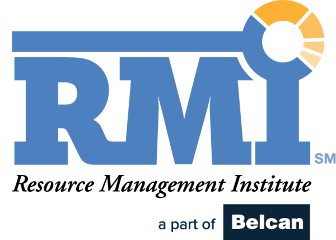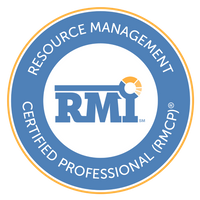No matter what industry you’re in, the individual and collective skills of your team directly impact your effectiveness. But the rapid pace of change today and constantly evolving company strategies and client demands make keeping those skills aligned and up to date a real challenge. And when you’re dealing with slim margins and unpredictable markets, filling the gaps with new hires isn’t always an option.
To stay competitive and ensure you’re ready to meet the future, look to resource skill development as an organic growth strategy. Getting started takes some effort, but with the right approach, your organization can steadily grow stronger and expand your portfolio of available skills to keep pace with a constantly changing market.
Tap Into Your Team
As a first step, take stock of all the skills that already exist within your ranks – you might be surprised by what you find. One way to do this is with a resource management solution that catalogs each team member’s abilities in a library. This makes it easy to organize resources, make informed decisions about task assignments, and maximize use of all available skill sets.
Build out your skills catalog by meeting with your team members to find out what other expertise they may be able to contribute. Does your digital strategist have an analytics background? Is your systems consultant taking a class in the latest programming language? You can only find these things out if you ask. Just be sure to only add skills that are relevant to your current and future business needs and that your team members are comfortable using. Bear in mind that requiring resources to put new skills to work may expand or alter their role within the organization. Be open-minded. After all, discovering untapped potential is the first step to organic development.
Get Behind Your Employees
Once you’ve decided you want your employees to develop their less-used skills, how do you get them to devote time and energy to doing so? It’s all about what’s in it for them. You can of course offer monetary incentive for team members to expand their repertoire and find new ways to support your company. But you might not need to. Providing time and space is often incentive enough for an employee who’s passionate about what they do.
If you expect team members to learn new skills while also managing their regular workloads, they’ll probably see it as a hassle and may choose to pass. But creating an opportunity to advance their career by giving them what they need to learn encourages professional development – for your team members, and the business at large.
Let It Unfold Organically
After you’ve identified potential areas for growth and the team members willing to make the effort, it’s time to create opportunities to put those skills to work. Trying out new and potential skills on client-facing projects may be a little risky right out of the gate, but internal projects can offer a great testing ground.
Identify smaller or lower risk projects that these skills can add value to. Be sure to give your skill learners guidelines, timelines, goals, and appropriate management. As the project progresses, collect feedback and make sure everyone’s needs are met. Learning new skills can be stressful. Gauge your resource’s readiness to more broadly apply the new skills based on how each project goes and their individual feedback. Celebrate the successes, learn from the failures, and give your growth-minded people props for their courage and commitment.
Testing out new skills internally lets you dip your toe into development without putting pressure on employees. When they’re ready, you can introduce these new skills into client-facing projects and make any new capabilities an official part of the person’s job description. It’s a smart way to make your existing teams even more robust.
Keep Up The Training
Once your team members have identified new skills and begun to make them an important part of your organization’s offering, be sure to keep the training coming. You might find there’s an opportunity to expand these skills to other people on the team. Consider a train-the-trainer model where team members can help each other develop and improve skills. It’s an easy way to expand what your organization can do without increasing the size of your workforce. That means you’ll be able to keep up with changing demands with fewer contract employees and new hires.
Resource skills development is a win-win for many organizations. It helps you strengthen your team and better retain employees by empowering individuals to expand their spheres of expertise. It’s a great way to build staff satisfaction while readying your team to respond to new, better, and more profitable projects in the years ahead.
Putting Your Resource Skills to Their Best Use
Growing your resource skills will help your business succeed, but you also need to use your teams effectively. To learn how to create stronger, more informed professional development and long-term success strategies, download our Agile Resource Management eBook now. Get Your Copy.
Ryan Montano is a technology professional with a passion for Product Management, Product Marketing, and Product Development. His areas of focus include B2B SaaS, Project Management, Analytics, Machine Learning, Artificial Intelligence, UI/UX design, and Startup Ventures. Ryan has spent nearly a decade in product development working closely with R&D and marketing teams on long-term strategic planning. This has allowed him to help shape countless key technology features and requirements that capture the essence of product value for clients.





